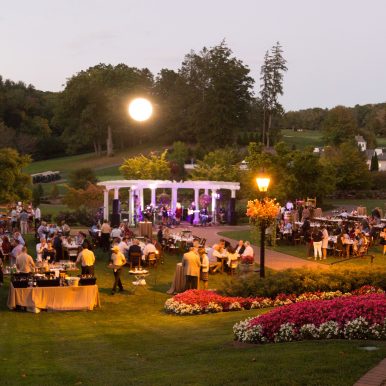Back in business
Meeting planners see return to normalcy ahead
Like the proverbial canary in the mineshaft, the state of the meetings and convention planning industry is a good barometer for predicting how well the economy is doing and what direction it is moving.
Despite the persistence of COVID-19 variants, the canary is still singing a happy tune — as are meeting and convention planners throughout Virginia who say they are pleased with what they are seeing.
“After three years of canceled and rescheduled meetings, organizations want face-to-face meetings, and demand is up,” says Christi Ruddy, manager of Covington Meetings and Events, a division of Richmond-based Covington Travel.
Steve Tewksbury, executive director of university events at William & Mary and president of the Virginia chapter of Meeting Professionals International, agrees with this assessment.
“In 2022, meetings seem to be booking with venues in the very short term, sometimes within weeks between a signed contract and the event,” he notes. “We’re [also] seeing meetings and conventions bookings rising well into 2023 and 2024.”
Ruddy and other colleagues in Virginia note that although prices for all meeting services — including airfare, hotel rooms and ground transportation — have risen with inflation rates, industry analysts and businesses report they are seeing a rise in bookings for 2023-24.
The Omni Homestead Resort, one of the state’s mainstays for large professional conventions, has seen improvement in long-term and short-term reservations, says John Hess, director of sales and marketing.
“We are very encouraged by the increase in leads and bookings for meetings and events,” he says. “While interest in 2024 and 2025 has grown considerably, we’ve also noticed an uptick in short-term group bookings.”
Also, Hess notes, “In September, we hosted around 30 meeting planners from around the mid-Atlantic region, and they too had a positive outlook on the future of the industry.”
The biggest challenge confronting the hospitality industry these days is staffing. Many senior staffers left the industry during the start of the pandemic and sought other employment, and so far, employers have had a hard time replacing them.

Tewksbury says that even though there are staffing shortages, he has great hope for the future of young people entering the industry.
“I am very encouraged by many Virginia universities that are offering world-class hospitality management programs. Virginia’s community colleges are also offering outstanding courses in culinary arts and business management skills to help train or retrain workers looking to start or to advance their careers in the meetings industry,” Tewksbury notes.
Graduates of Virginia’s colleges and universities will be entering into a career field, he says, that is “ripe with opportunities to gain expertise from the bottom up and in many cases experience rapid career advancement, particularly for those who bring valuable technical skills, a strong work ethic and a gracious customer service approach.”
As year three of the pandemic ends, COVID has remained an issue but is no longer the only factor governing work-related travel.
“We’ve just had to adapt and accept,” Ruddy explains. “COVID precautions,” she says, are part of the job, part of “risk mitigation process.”
“At least now, we have a better idea of what to expect,” adds Marty Malloy, principal and co-founder of Henrico County-based Convention Connections Inc., which plans conventions nationwide.
Conference attendees really want to get back together and meet face-to-face again, he says. “We are experiencing strong demand as our clients are all hosting their conventions and conferences again. All of our clients have exceeded expectations with regard to attendance this year. We believe we will be back to pre-pandemic numbers in 2023.”
Malloy and Ruddy each explain that hybrid meetings are a great safety net but cost more.
“Basically, you need to plan two events: one for in-person, one for an online audience,” Ruddy says. “Make sure to consider engagement for online. The production element, including audiovisual and staff, is expensive.”
The industry is rebounding, Tewksbury says, and the future looks great for those interested in careers in conference and meeting planning.
“In addition to the traditional skillsets required for the meeting and planning industry, those considering entering the field need to come with increased technology skills to assist the planners and anticipate future needs of clients,” he says. “This is a great time to be someone entering the industry.”


















